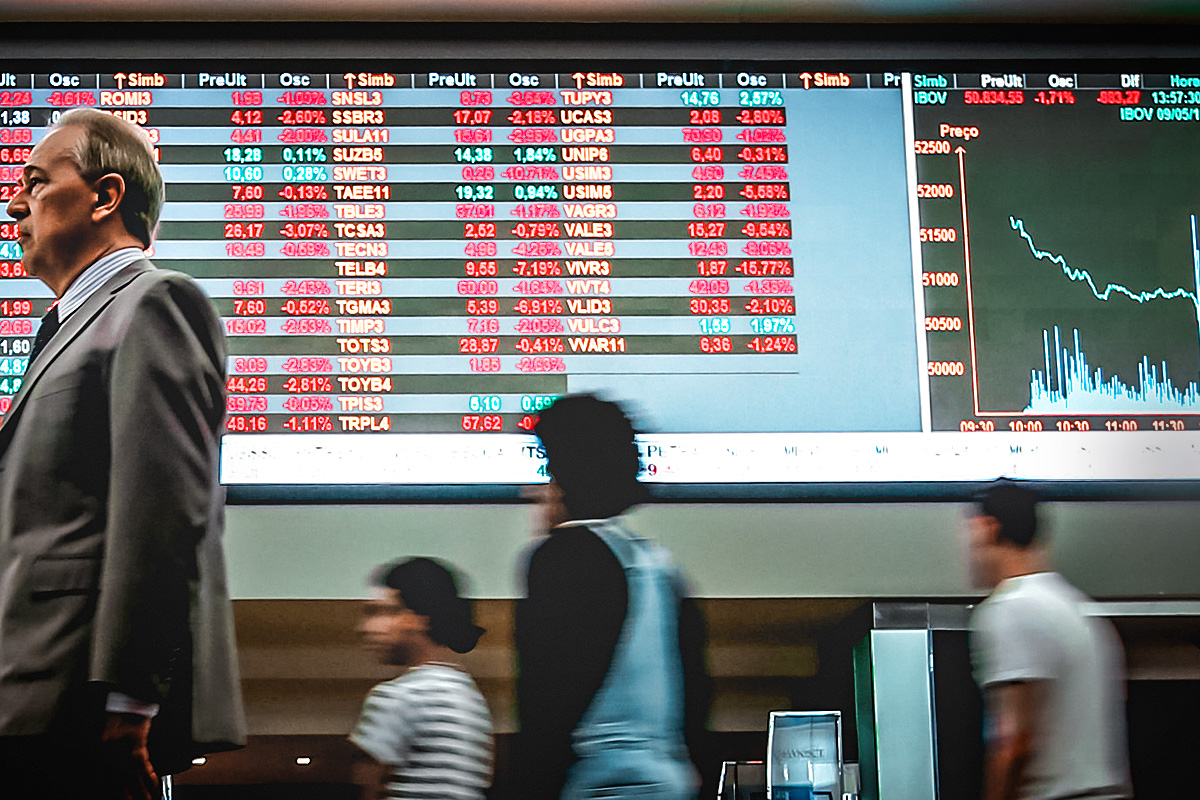RIO DE JANEIRO, BRAZIL – The IBOVESPA, the main B3 stock index, fell 1.15 percent and closed the trading session on Tuesday, September 29th, at 93,580.35 points – the lowest score in 95 days. Since hitting its peak after the start of the pandemic in July, the index has already dropped 11.39 percent.
Yesterday’s trend continued the decline begun earlier this week when President Jair Bolsonaro announced the ‘Renda Cidadã‘ (Citizen Income) social program. The program’s proposed funding sources – judicial deposit releases and the Fund for Maintenance and Development of Basic Education (FUNDEB) – were not favorably viewed by the market.
“The two funding sources for the program are not within the fiscal ceiling umbrella. So, the market understood that there is an accounting veneer to accommodate the program”, says Camila Abdelmalack, chief economist of Veedha Investments.

On Tuesday, President Bolsonaro tried to soften the situation with investors and asked for “suggestions” instead of criticisms and even talked about privatizations to pay the program costs. But the statement ultimately created even greater instability in the market.
“The statement contributes to the index dropping, since it displays all the uncertainties of the Economic team in this context of a need for stimulus, but limited to the spending ceiling. It is a complex obstacle to be solved. Meanwhile, we continue with a deteriorated fiscal framework,” comments Régis Chinchila, analyst at Terra Investments.
Although privatizations are perceived as positive by investors, the chances that they will actually materialize to finance the Renda Cidadã have also been perceived negatively. “That would be wrong. Privatization money is finite. You can’t sell assets to pay current expenses. But he didn’t mean it. Surely, that’s not what [Minister of Economy] Paulo Guedes thinks,” says Victor Hasegawa, manager of Infinity Asset.
Big Caps
With great weight on the IBOVESPA, Petrobras common shares dropped 2.82 percent and preferred shares by 1.63 percent, following the oil barrel price, which plummeted again in the futures market, amid uncertainty about the impacts of a second wave of coronavirus on demand for the commodity. In the month, both WTI and Brent crude oil prices accumulated losses of around 8.5 percent. The major banks’ shares also put strong pressure on the index, with Itaú, Banco do Brasil, Santander, and Bradesco closing with drops of over two percent.
Highest rises
Amid the scenario of aversion to the internal environment, the shares of the manufacturer of Weg engines, which has most of its revenue coming from abroad, and therefore in dollars, bucked the trend to rise 3.26 percent. Lojas Americanas and Natura stocks also rose, climbing 2.05 and 1.97 percent, respectively. “The market is looking for more solid companies and with more consolidated exporting markets, with an eye on the dollar’s high,” says Chinchila.
Highest drops
Known for their greater volatility, the shares of Azul, GOL, and CVC led the IBOVESPA losses, dropping 7.71, 5.72, and 3.88 percent, respectively. EMBRAER’s shares, which closed the trading session on Monday, September 28th, on the positive side, also experienced sharp decline in this trading session, dropping 4.09 percent. Usiminas, CSN, and Gerdau also figure among the highest drops, with respective devaluations of 2.86, 2.67, and 1.31 percent. On the investors’ radar is the Chinese National Day holiday, which will interrupt iron ore trading in the futures market for one week. With greater weight on the indexes, Vale stocks dropped 0,73 percent.
Trump vs Biden
If the local environment is still tense, the external environment does not help either, with global markets waiting for the first debate among the presidential candidates. “The market wants to understand what’s coming up in the polls after the first debate, which should provide a more realistic picture of how the election race is looking over there,” Abdelmalack says.
Source: Exame

